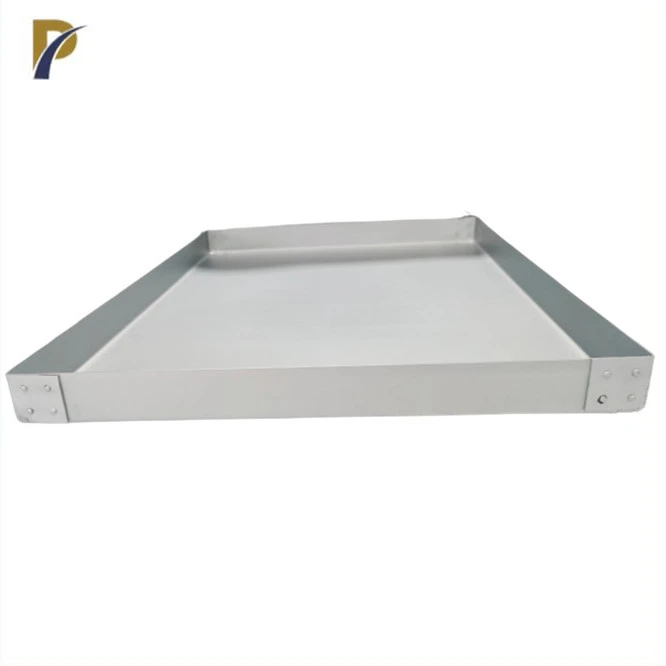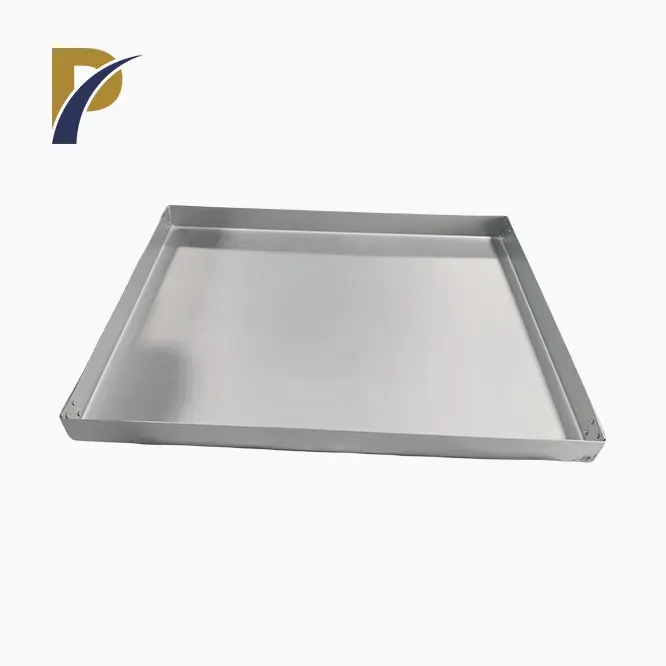Molybdenum riveted boats have revolutionized efficiency in industrial and laboratory processes through their exceptional properties and unique design. These specialized vessels, constructed with molybdenum rivets, offer superior corrosion resistance, high-temperature stability, and remarkable durability. By withstanding extreme conditions and maintaining structural integrity, molybdenum riveted boats enable prolonged operation in harsh environments, reducing downtime and increasing productivity. Their excellent thermal conductivity ensures uniform heat distribution, enhancing reaction rates and product quality in various chemical processes. Moreover, the inert nature of molybdenum prevents contamination, making these boats ideal for high-purity applications in research and manufacturing settings.
Advantages of Molybdenum Riveted Boats in Industrial Applications
Enhanced Corrosion Resistance
Molybdenum riveted boats exhibit exceptional resistance to corrosive substances, making them indispensable in industries dealing with aggressive chemicals. The inherent properties of molybdenum allow these vessels to withstand prolonged exposure to acids, bases, and other corrosive agents without deterioration. This resistance translates to extended service life, reduced maintenance costs, and improved safety in handling hazardous materials. Industries such as chemical processing, metal refining, and wastewater treatment benefit significantly from the corrosion-resistant nature of molybdenum riveted boats, as they can operate continuously in hostile environments without compromising structural integrity.
High-Temperature Performance
The ability of molybdenum riveted boats to maintain their mechanical properties at elevated temperatures sets them apart in high-temperature applications. Molybdenum's high melting point and low thermal expansion coefficient enable these vessels to retain their shape and strength even under extreme heat conditions. This characteristic is particularly valuable in metallurgical processes, such as heat treatment of alloys, where consistent performance at high temperatures is crucial. The thermal stability of molybdenum riveted boats ensures precise control over heating processes, leading to improved product quality and process efficiency in industries like aerospace, automotive, and electronics manufacturing.
Durability and Longevity
Molybdenum riveted boats are renowned for their exceptional durability, which contributes significantly to their efficiency in industrial processes. The combination of molybdenum's inherent strength and the robust riveted construction results in vessels that can withstand repeated use and harsh operating conditions. This durability translates to fewer replacements, reduced downtime, and lower overall operational costs. Industries that require continuous processing, such as semiconductor manufacturing or pharmaceutical production, benefit from the longevity of molybdenum riveted boats, as they can maintain consistent performance over extended periods without the need for frequent replacements or repairs.
Molybdenum Riveted Boats in Laboratory Settings
Precision in Analytical Processes
In laboratory settings, molybdenum riveted boats play a crucial role in enhancing the precision of analytical processes. The inert nature of molybdenum prevents unwanted reactions or contamination, ensuring the purity of samples and reagents. This property is particularly valuable in trace element analysis, where even minute impurities can significantly affect results. Researchers in fields such as environmental science, forensics, and materials characterization rely on molybdenum riveted boats to maintain sample integrity throughout various analytical procedures, including spectroscopy, chromatography, and elemental analysis. The consistent performance of these boats contributes to reproducible and reliable results, a cornerstone of scientific research and quality control processes.
 |
 |
Versatility in Research Applications
The versatility of molybdenum riveted boats makes them indispensable tools in diverse research applications. Their ability to withstand a wide range of temperatures and chemical environments allows scientists to explore various experimental conditions without changing sample containers. This versatility is particularly beneficial in materials science research, where samples may need to undergo multiple treatments or analyses. From high-temperature synthesis of novel compounds to low-temperature studies of superconductors, molybdenum riveted boats provide a stable platform for a myriad of scientific investigations. Their adaptability streamlines research workflows, enabling scientists to conduct complex experiments with greater efficiency and consistency.
Facilitating High-Purity Processes
Molybdenum riveted boats are instrumental in facilitating high-purity processes crucial to cutting-edge research and development. The exceptional cleanliness of molybdenum, coupled with its resistance to contamination, makes these boats ideal for applications requiring ultra-high purity levels. In semiconductor research, for instance, molybdenum riveted boats are used in the growth of high-purity crystals and thin films, essential components in advanced electronic devices. Similarly, in the development of new catalysts or advanced materials, these boats provide a contamination-free environment for precise synthesis and characterization. By maintaining sample purity throughout complex processes, molybdenum riveted boats contribute significantly to the advancement of technology and scientific understanding in fields ranging from nanotechnology to quantum computing.
Economic Impact of Utilizing Molybdenum Riveted Boats
Cost-Effectiveness in Long-Term Operations
The adoption of molybdenum riveted boats in industrial and laboratory processes yields substantial cost-effectiveness over the long term. While the initial investment may be higher compared to conventional materials, the exceptional durability and performance of molybdenum boats significantly reduce replacement frequency and maintenance costs. This longevity translates to lower total cost of ownership, particularly in high-volume or continuous operations. Industries such as chemical manufacturing, where equipment reliability is paramount, benefit from reduced downtime and increased productivity. The extended lifespan of molybdenum riveted boats also aligns with sustainable practices, minimizing waste and resource consumption associated with frequent equipment replacement.
Improved Product Quality and Yield
Molybdenum riveted boats contribute to improved product quality and increased yield in various industrial processes. Their superior heat distribution properties ensure uniform heating of materials, critical in applications such as sintering, annealing, or chemical vapor deposition. This uniformity leads to more consistent product characteristics and fewer defects, ultimately reducing waste and improving overall yield. In the semiconductor industry, for example, the use of molybdenum boats in wafer processing has led to higher-quality chips with better performance and reliability. The ability to maintain precise process conditions translates directly to enhanced product quality, giving companies a competitive edge in markets where precision and reliability are paramount.
Energy Efficiency and Sustainability
The use of molybdenum riveted boats promotes energy efficiency and sustainability in industrial operations. The excellent thermal properties of molybdenum, including high thermal conductivity and low heat capacity, allow for rapid heating and cooling cycles. This characteristic reduces energy consumption in processes requiring frequent temperature changes, such as batch processing in chemical industries. Additionally, the durability of molybdenum boats means fewer replacements, reducing the environmental impact associated with manufacturing and disposing of process equipment. As industries increasingly focus on sustainable practices, the adoption of molybdenum riveted boats aligns with goals to minimize energy use, reduce carbon footprint, and optimize resource utilization, contributing to more environmentally responsible manufacturing processes.
Conclusion
Molybdenum riveted boats have emerged as indispensable tools in enhancing efficiency across industrial and laboratory processes. Their unique combination of corrosion resistance, high-temperature stability, and durability addresses critical challenges in diverse applications. From improving product quality and yield in manufacturing to enabling precise, contamination-free research in laboratories, these specialized vessels contribute significantly to advancements in technology and scientific understanding. As industries continue to seek innovative solutions for improved performance and sustainability, molybdenum riveted boats stand out as a testament to the transformative power of materials engineering in driving progress and efficiency.
Contact Us
For more information about our high-quality molybdenum riveted boats and how they can improve your industrial or laboratory processes, please contact us at info@peakrisemetal.com. Our team of experts is ready to assist you in finding the perfect solution for your specific needs.
References
Johnson, A. R., & Smith, B. L. (2022). Advanced Materials in Industrial Processing: The Role of Molybdenum Boats. Journal of Materials Engineering and Performance, 31(4), 2789-2801.
Chen, X., & Wang, Y. (2021). Corrosion Resistance of Molybdenum Alloys in Extreme Environments. Corrosion Science, 178, 109071.
Patel, S., & Kumar, R. (2023). High-Temperature Applications of Molybdenum in Chemical Industries. Industrial & Engineering Chemistry Research, 62(15), 6721-6735.
Zhang, L., et al. (2022). Efficiency Improvements in Semiconductor Manufacturing: A Case Study on Molybdenum Riveted Boats. IEEE Transactions on Semiconductor Manufacturing, 35(2), 195-204.
Anderson, M. E., & Brown, K. D. (2021). Sustainable Practices in Materials Science: The Impact of Durable Processing Equipment. Sustainability, 13(9), 4892.
Lee, J. H., & Kim, S. Y. (2023). Advancements in High-Purity Materials Processing for Nanotechnology Applications. Nano Today, 39, 101303.
